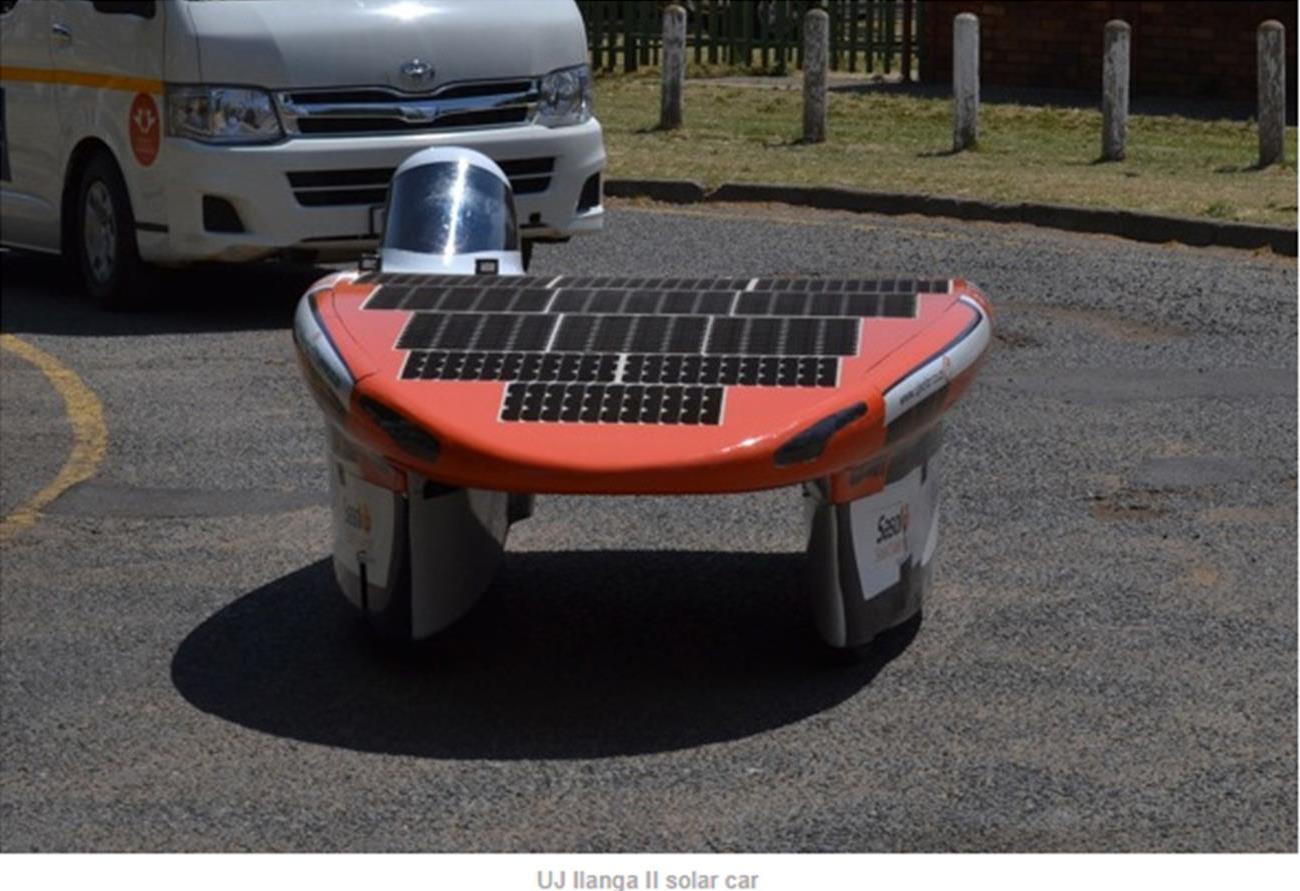University of Johannesburg wins Innovation Awards at the 2014 Sasol Solar Challenge
Last Tuesday, the University of Johannesburg (UJ) made the announcement that its team sent to the 2014 Sasol Solar Challenge bagged the Technology and Innovation Award on Saturday, October 4th.
This would be the second time that the solar team from UJ is recognized for their innovation, after winning the innovation award for the first time during the 2012 Sasol Solar Challenge.
The team’s innovation was a solar-powered vehicle dubbed, llanga ll (which is a Zulu word meaning Sun). The vehicle is made up of Gallium Arsenide (GaAs) solar panels that were imported from Germany. GaAs allowed the team to build the smallest and lightest vehicle weighing in at 185 Kg (408 Pounds).
UJ says this was the first time that the GaAs was used in a solar race challenge. Other lightweight components that went into the making of the vehicles bodies and suspension system include carbon fibre, Airex foam core and Kevlar.
The car’s battery that weighs less than 20% of the total weight of the car is made up of 400 individual Lithium-Ion cells. The car also features an axial flux brushless DC hub motor, which is said to have been customized for solar racing. The motor is also said to be very efficient and has a high peak power output.
The steering wheel was made by 3D printer and is fitted with a custom electronics board that is connected to an LCD display together with a variety of buttons. One of the buttons is a booster button, which when pressed gives the car a quick boost of acceleration whenever the driver needs it.
The car also has a full telemetry system that enables the team member in charge of the racing strategy and vehicle optimization to monitor the car’s solar panel’s power output. As well as the remaining power stored in the battery pack from a remote location.
“Considering the terrain and weather conditions, he could then advise the driver on how to manage the available power optimally.” – Said, University of Johannesburg.
UJ emerged fifth place behind the following other participants of the 8-Day’s race, 2014 Sasol Solar Challenge:
- 1st Place – Delft University of Technology (Netherlands).
- 2nd Place – Anadolu University (Turkey).
- 3rd Place – University of KwaZulu-Natal.
- 4th Place – North West University.
The solar team from UJ said it now wants to represent South Africa in the forthcoming World Solar Challenge to be held in Australia in 2015.





